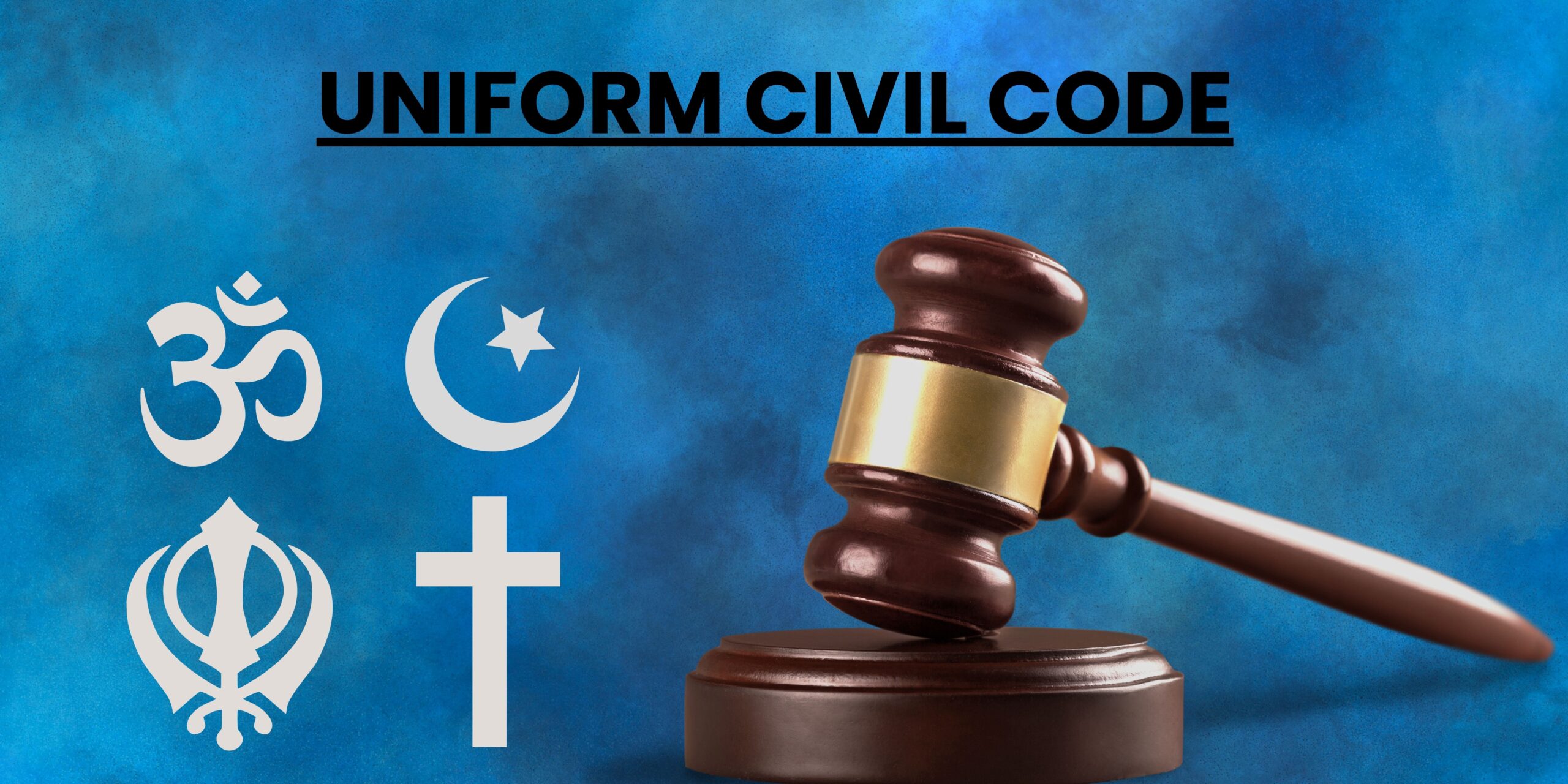Hey there, curious minds! Today, we’re diving into the heart of India’s Uniform Civil Code (UCC) debate—a hot topic sparking conversations from bustling city corners to quiet villages. The UCC, aiming for a common set of rules regardless of religion, is like a puzzle piece in India’s intricate story.
To understand why this debate is buzzing, let’s rewind. Back when India got its wings of independence, leaders aimed for a delicate dance between unity and diversity. Communities were given the freedom to follow their own laws based on religion. Fast forward to today, and a question lingers: Should we all play by the same rules?
Historical Threads
To truly understand the UCC, we need to rewind the clock to the days when India was drafting its Constitution. The framers were faced with a challenge: how to create a society that embraces diversity yet ensures equal rights for all. The solution? Let different communities follow their own personal laws based on their religious beliefs. It was a delicate balance between unity and diversity.
Over the years, however, the question has lingered: should we move towards a common set of rules that applies to everyone, regardless of religious background? This question has evolved into the contemporary debate on the Uniform Civil Code.
Decoding the Uniform Civil Code
So, what’s this UCC all about? At its core, it proposes a unified legal framework governing personal matters such as marriage, divorce, adoption, and inheritance. The idea is to foster equality and unity by ensuring that the same rules apply to all citizens, irrespective of their religious affiliations.
Proponents argue that a UCC would eliminate gender-based discrimination embedded in various personal laws, paving the way for a more just and equal society. It’s seen as a step towards realizing the constitutional ideals of secularism and gender justice.
Supreme Court’s Views on Uniform Civil Code
The Supreme Court has expressed its stance on the implementation of the Uniform Civil Code (UCC) in several landmark judgments. In the case of Mohd. Ahmed Khan vs Shah Bano Begum in 1985, a divorced Muslim woman sought maintenance from her former husband. The Supreme Court, faced with the decision of whether to prioritize the Criminal Procedure Code (CrPC) or Muslim personal law, emphasized the need for the UCC’s implementation.
Furthermore, in the 1995 Sarla Mudgal case and the 2019 Paulo Coutinho vs Maria Luiza Valentina Pereira case, the Supreme Court reiterated its call for the government to enact the UCC.
Law Commission’s Perspective on Uniform Civil Code
In response to the Modi government’s request, the Law Commission presented a comprehensive 185-page consultation paper on family law reform in 2018. While the Law Commission acknowledged the significance of the UCC, it deemed its immediate implementation as unnecessary and undesirable.
Instead, the commission advocated for a thorough examination and reform of discriminatory practices, prejudices, and stereotypes within specific religious laws. The recommendation focused on addressing these issues within existing personal laws rather than the immediate implementation of a Uniform Civil Code.
Current Controversies
Fast forward to today, and the UCC is at the heart of a heated debate. Supporters advocate for its implementation, emphasizing the need for a progressive, uniform legal system that respects individual rights and promotes social cohesion. They argue that the existing personal laws often disadvantage women, leading to instances of inequality and injustice.
On the flip side, critics express concerns about the potential erasure of cultural identities and the infringement on religious freedoms. India’s diverse cultural and religious landscape is a mosaic, and many worry that a UCC could disrupt this delicate balance, especially for minority communities.
The debate is not just confined to living rooms or academic circles. It has spilled into the legal and political arenas, with various court cases and government initiatives fueling the discussion. The recent push for a UCC by certain political quarters has reignited the controversy, bringing it back to the forefront of public discourse.
Pros and Cons: The Tug of War
Let’s break down the arguments on both sides of the aisle. Proponents of the UCC argue that a common legal code would simplify legal processes, making them more accessible and transparent. It could potentially eradicate regressive practices, especially those impacting women in matters of marriage, divorce, and inheritance.
However, opponents express valid concerns. They worry that a UCC might lead to a cultural homogenization, disregarding the rich tapestry of traditions that make India unique. There’s also apprehension about the potential marginalization of minority communities, as a one-size-fits-all approach may not adequately address the diverse needs of different religious and cultural groups.
Case Studies: Lessons from Across Borders
To gain insights, let’s peek at other countries that have embraced a Uniform Civil Code. France and Turkey have such codes, but it’s essential to note that these models aren’t a one-size-fits-all solution. France’s laïcité emphasizes secularism, whereas Turkey’s approach has evolved over time. These case studies highlight the need for a nuanced understanding, tailored to India’s distinct socio-cultural fabric.
The Way Forward
So, where does India go from here? The path forward is riddled with complexities. Striking a balance between promoting gender equality, secularism, and respecting cultural diversity is no easy feat. The solution, if there is one, lies in nuanced conversations, informed debates, and a collective effort to find common ground.
It’s crucial to recognize that the UCC debate is not just a legal or political matter; it’s a societal dialogue. Engaging with diverse perspectives, understanding the concerns of different communities, and respecting individual freedoms are key to navigating this intricate terrain.
Conclusion: Harmony in Diversity
In conclusion, the Uniform Civil Code debate is a reflection of India’s quest for harmony amidst diversity. It’s about finding a middle ground that upholds constitutional values while respecting the plurality that defines our nation. As we move forward, let’s keep the conversation alive, recognizing that the journey towards a more just and equal society requires collective participation and an unwavering commitment to unity in diversity.
